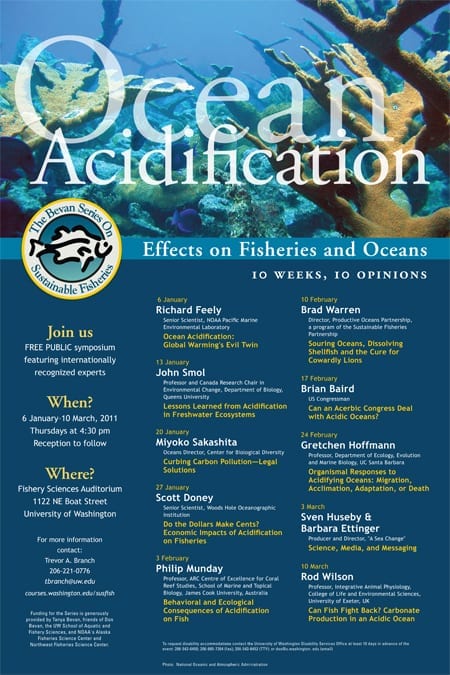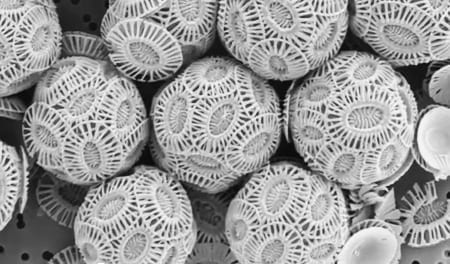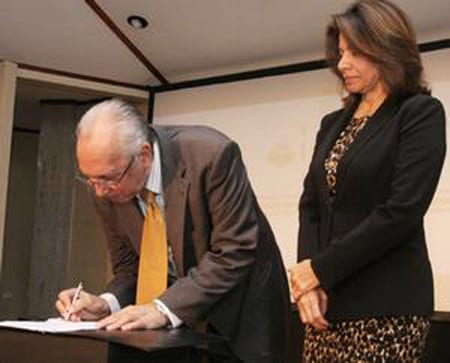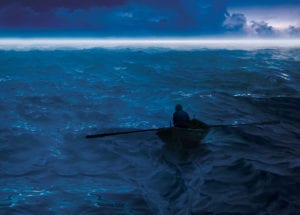By Daniel de la Calle
Every few weeks there is a new one, March was not going to be an exception. Here you go, the list of A Sea Change news, Ocean Acidification videos and assorted internet links.
¤¤ Barbara and Sven spent this past month on the West Coast attending screenings, meeting people, seeing family, reflecting on future projects, maybe playing a little tennis as well. Just a few days ago they were at the University of Washington, where they delivered an hour lecture titled “Science, Media and Messaging” to graduate students from the School of Fisheries and Aquatic Studies. The link to the Bevan Series on Sustainable Fisheries on Ocean Acidification? Voila!:
http://courses.washington.edu/susfish/2011/huseby.html

¤¤ NOAA released in February an aquaculture program intended to “increase the US supply of healthy seafood, create jobs in coastal and other communities, spur innovation in technology and help restore depleted species and marine habitats.” To give you an idea of its relevance, aquaculture has overtaken wild fisheries as the main source of seafood in the world. And let’s not forget either that 84% of the seafood Americans put in their mouths is imported, making fish and shellfish the greatest natural resource contributors to the national trade deficit after…crude oil and natural gas!
Visit the specific NOAA page, read the policy, even submit your own comments here:
http://www.nmfs.noaa.gov/aquaculture/doc_policy/index.htm
¤¤ To continue with seafood, Sven sent me some weeks ago an interesting page from the EPOCA site about the first day of the SeaWeb International Seafood Summit 2011 in Vancouver. Within the text there was a call by marine experts to “the global seafood industry and all other ocean stakeholders to avoid a defeatist attitude with ocean acidification and to instead pile pressure on scientists to provide solid data and advise on the potentially catastrophic problem, which could then be used to create concrete solutions.” There are also valuable words from Dick Feely and Henry Demone, the president and CEO of High Liner Foods, a major Canadian seafood supplier seriously concerned with the problem and long-term implications of Ocean Acidification.
¤¤ This is a video from San Francisco State University about recent research on how one type of phytoplankton (E. huxleyi) will adapt to growing Ocean Acidification.
This form of phytoplankton is a power player in the ocean’s ability to absorb greenhouse gases. If you watch it you will discover in more detail E. huxleyi’s vital abilities. It is beautiful under the microscope.

¤¤ Here is a United Nations PDF about Ocean Acidification. Thought it could come in handy to some of you, there is no such thing as too many PDFs in the Documents folder.
¤¤ An hour long video from the Center for Biological Diversity’s website with a lecture by Miyoko Sakashita on Ocean Acidification at the Bevan Series on Sustainable Fisheries. Not the most impressive video production, but the message is there:
¤¤ Are you a UK or EU science student looking for a PhD project on the effects of Ocean Acidification on shell characteristics in articulated brachiopods? Look no further!:
http://www.findaphd.com/search/showproject.asp?projectid=32366&searchtype=n&page=2
¤¤ Costa Rica has decided to expand its marine protected area around Cocos Island National Park. The protected area now covers 2,900 nautical square miles of ocean waters rich with endangered sharks and sea turtles.
In the photograph below, President Laura Chinchilla Miranda and her Environmental Minister Teófilo de la Torre signing the decree.

¤¤ Would you like your child, niece or the neighbor’s kid, maybe your grandson to learn about Ocean Acidification but do not have a DVD copy of A Sea Change, our very educational documentary on the subject? Here is an article tailored to kids about Ocean Acidification that will do the job as well. Do not expect the same level of fun as if you were watching A Sea Change, though.


